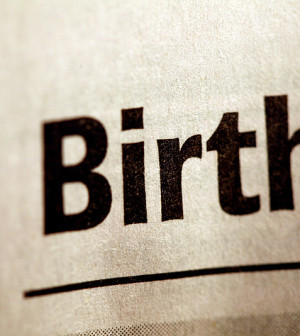- 7 Best Breads for Maintaining Stable Blood Sugar
- Gelatin vs. Collagen: Which is Best for Skin, Nails, and Joints?
- The Long-Term Effects of Daily Turmeric Supplements on Liver Health
- Could Your Grocery Store Meat Be Causing Recurring UTIs?
- Are You Making This Expensive Thermostat Error This Winter?
- Recognizing the Signs of Hypothyroidism
- 10 Strategies to Overcome Insomnia
- Could Artificial Sweeteners Be Aging the Brain Faster?
- Techniques for Soothing Your Nervous System
- Does the Water in Your House Smell Funny? Here’s Why
Health Highlights: Sept. 5, 2013


Here are some of the latest health and medical news developments, compiled by the editors of HealthDay:
Health Insurance Marketplace Premiums Will be Competitive: Studies
There will be numerous options for Americans trying to find lower insurance premiums under the health care law, according to two independent private studies.
Government tax credits would lower the cost of a benchmark “silver” policy to about $190 a month for a single person who earns about $29,000 a year, regardless of their age, says a study by the nonprofit Kaiser Family Foundation, the Associated Press reported.
Some younger people who combine their tax credit with a basic “bronze” policy could reduce their premiums to between $100 and $140 a month, and older people could lower their monthly fees to well below $100 if they opt for higher deductibles and co-payments, according to the Kaiser study.
A study by the private data analysis firm Avalere Health averaged the costs of policies with different levels of coverage. Without tax credits, premiums for a “silver” plan would be about $270 a month for a 21-year-old, close to $330 a month for a 40-year-old, and $615 for a 60-year-old, the AP reported.
Beginning Oct. 1, people who don’t have health insurance through work will be able to use new online insurance markets to compare private plans and learn if they qualify for a tax credit. About 4 of 5 people in the new markets will be eligible for some degree of tax credit.
As of Jan. 1, nearly all Americans will need to have coverage or face fines.
The insurance marketplace will be competitive, but there will be significant price differences among age groups, states and even within states, according to Caroline Pearson, a vice president of Avalere and lead author of the company’s study.
“We are seeing competitive offerings in every market if you buy toward the low end of what’s available,” Pearson told the AP. But for uninsured people who currently don’t paying health insurance premiums, “this is still a big cost that they’re expected to fit into their budgets,” she added.
—–
Rare Brain Disease Kills N.H. Man, Others May be at Risk
A man in New Hampshire has died from a rare, degenerative brain disease and other people may be at risk, according to state health officials.
They said the victim died of sporadic Creutzfeldt-Jakob Disease Wednesday at the Catholic Medical Center in Manchester. The patient had brain surgery at the hospital in May and was later readmitted with signs of rapidly progressing dementia, CBS News/Associated Press reported.
One way that the disease spreads is through surgical tools that haven’t been sterilized for the protein that causes the disease. The same surgical tools used on the man who died were also used on eight other patients at the hospital. In addition, five people outside of New Hampshire may be at risk because the tools used at the hospital were rented elsewhere.
While it’s unlikely that other patients will contract the brain disease, officials say it is possible, CBS/AP reported.
—–
First U.S. Hospital-Based Internet Addiction Treatment Program Opens
The first hospital-based Internet addiction treatment center in the United States opens next week and will offer 10-day inpatient care for people diagnosed with the disorder.
The program at the Behavioral Health Services at Bradford Regional Medical Center in Pennsylvania will admit up to four patients at a time. They’ll undergo an extensive evaluation and a “digital detox” that forbids phone, tablet or Internet use for at least 72 hours, according to ABC News.
The next steps include therapy sessions and educational seminars to help them get their addiction under control.
Internet addiction isn’t recognized as a mental health disorder by the psychiatric community, which means the treatment isn’t covered by insurance. Patients will have to pay the $14,000 fee out of their own pockets, ABC News reported.
While most people can balance online activities and their regular life, people with Internet addiction have trouble with normal day-to-day functioning.
“Like any other addiction, we look at whether it has jeopardized their career, whether they lie about their usage or whether it interferes with relationships, Kimberly Young, a psychologist and founder of the new program told ABC News.
Copyright © 2026 HealthDay. All rights reserved.










